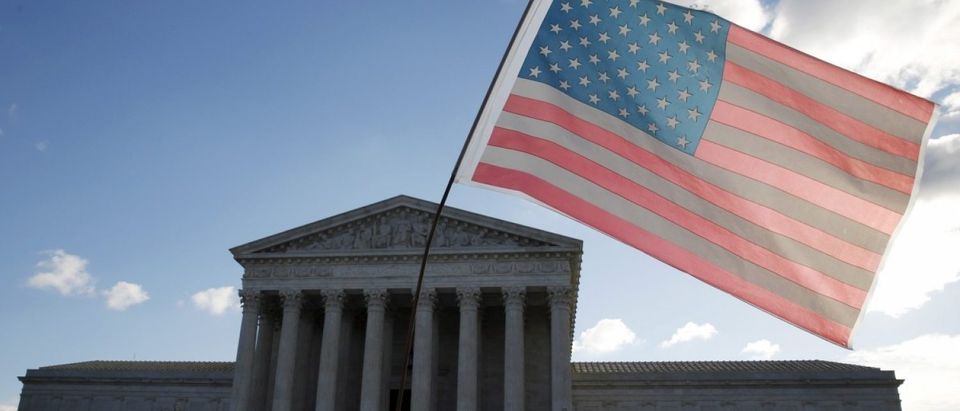Now that Justice Antonin Scalia is gone from the Supreme Court, the liberal justices have been giving us a preview of what the high court will be like if the Senate confirms President Obama’s nominee. Take careful note: They are already flexing their muscles. And that’s before they have a majority.
There’s no question that the liberal justices have become much more active at oral argument than when Justice Scalia was on the court. Others have reported on the phenomenon, but I saw it firsthand on Wednesday, when the Little Sisters of the Poor and other religious groups argued before the court in Zubik v. Burwell. Justice Breyer was his usual professorial self, but much more verbose than usual. Early in the Sisters’ argument, Justice Breyer asked a theoretical question that occupies nearly two pages of the transcript. The question went from professorial to irrelevant when he revealed that he had been reading St. Benedict, “not for religious purposes,” but “to find out something about being a member of society.”
In the old days, such philosophizing would have drawn a quick “Aren’t we supposed to be interpreting American law?” from Justice Scalia. Without the counterbalance, though, two of the other liberal justices joined in with vague observations on the nature of religious freedom more akin to political posturing than legal argument.
The dynamic was even more striking during the recent arguments about a Texas law raising health standards at abortion clinics. The liberal justices appeared to be intentionally filibustering to avoid letting Texas Solicitor General Scott Keller make his arguments. I doubt that Justice Scalia would have allowed them to strategically monopolize the questioning.
As we are now seeing, Justice Scalia’s mere presence on the court had a restraining influence on the other justices. By custom, Supreme Court justices do not discuss cases until oral argument. Justice Scalia’s colleagues knew, however, that he always came prepared to spar, not just with the lawyers who appeared before the court, but also with them. He thus forced the other justices to defend their reasoning in public, which encouraged precise thinking. He also provided a winsome pugnaciousness that deterred overt bullying.
At the moment, the assertiveness of the liberal justices has natural limits. If they vote as a bloc, they cannot create binding precedent without support from at least one other justice. This means that until the Scalia seat is filled, the liberals’ ability to control the court will be limited. On the other hand, were President Obama’s nominee to be confirmed, the new liberal majority would quickly undo several cases that protect essential civil liberties ranging from gun rights to political speech.
This is not a merely theoretical possibility. As Ethics and Public Policy Center president Ed Whelan recently noted, liberal activist majorities in the past have not been shy about using their power. On a single spring day in 1963, for instance, the liberal majority of the Warren Court — which had only achieved majority status a few months earlier — overturned four long-standing Supreme Court precedents. Led by Justice William Brennan, these justices went on to perform many more deeds of judicial activism over the years.
Should Justice Scalia eventually be replaced with a liberal justice, the emboldened liberal majority will face few limits. The Supreme Court might once again come to resemble the Warren Court, which gave itself the power to become the central political actor in American government. If so, it wouldn’t be the first time. And this time, we can’t say that nobody warned us.


